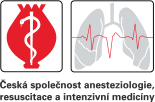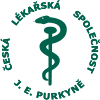Anest. intenziv. Med. 2021;32(3):164-167 | DOI: 10.36290/aim.2021.035
Central anticholinergic syndrome - forgotten diagnosisCase Report
- Klinika anesteziologie, resuscitace a intenzivní medicíny 1. lékařská fakulta Univerzity Karlovy a Ústřední vojenská nemocnice Praha
Our article presents a case report of patient with persistent impaired consciousness on awakening from general anesthesia. A 65-year-old patient with Crohn's disease was indicated for scheduled laparoscopic assisted ileocecal resection. The operation was performed without complications under general anesthesia. In the immediate post-anesthetic period, a quantitative disorder of consciousness of the nature of significant somnolence to sopor dominated. The state of consciousness did not improve over time and therefore naloxone and aminophyllin were administered to patients with a suspected prolonged opiate effects. However, their administration did not lead to an adjustment of the consciousness. After excluding all other causes of disturbances of consciousness, we considered central anticholinergic syndrome (CAS) and proceeded to the administration of physostigmine. Patients regained full alertness, accelerated psychomotor pace, and improved muscle strength within a minute. Further course of hospitalization without any sights.
Keywords: prolonged recovery from anesthesia, physostigmine, anticholinergic syndrome.
Received: March 18, 2021; Revised: May 21, 2021; Accepted: May 24, 2021; Published: July 26, 2021 Show citation
References
- Misal US, Joshi SA, Shaikh MM. Delayed recovery from anesthesia: A postgraduate educational review. Anesth Essays Res. 2016 May‑Aug; 10(2): 164-172.
 Go to original source...
Go to original source...  Go to PubMed...
Go to PubMed... - Hess L, Málek J, Schreiberová J. Fyzostigmin a jeho použití v současné anesteziologii a intenzivní medicíně. Anest. Intenziv.Med. 2006; 17(6): 287-294.
- Rupreht J, Dworacek B. Centrální anticholinergní syndrom (CAS) v pooperačním období. Anesteziologie a neodkladná péče. 1999; 10(3): 94-100.
- Mark Su, MD, MPH. Matthew Goldman, MD. Anticholinergic poisonong. UpToDate. 2020 [cit. 2020-03-24]. Dostupné z: https://www.uptodate.com/contents/anticholinergic‑poisoning.
- Rasimas JJ, Sachdeva KK, Donovan JW. Revival of an antidote: bedside experience with physostigmine. Toxicology Communications. 2018; 2(1): 85-101. doi: 10.1080/24734306.2018.1535538
 Go to original source...
Go to original source... - Cao X, Cui Y, White PF, Tang J, Ma H. Central anticholinergic syndrome vs. idiosyncratic reaction triggered by a small IV dose of atropine. Acta Anaesthesiol Scand. 2016; 60(2): 270-273.
 Go to original source...
Go to original source...  Go to PubMed...
Go to PubMed... - Cook B, Spence AA. Post‑operative central anticholinergic syndrome. Eur J Anaesthesiol. 1997 Jan; 14(1): 1-2.
 Go to original source...
Go to original source...  Go to PubMed...
Go to PubMed... - Piper SN. Do patients profit from physostigmine in recovery from desflurane anaesthesia? Acta Anaesthesiol Scand. 2007; 51(3): 278-283.
 Go to original source...
Go to original source...  Go to PubMed...
Go to PubMed... - Cho H, Kim J. Development of postoperative central anticholinergic syndrome due to low‑dose intravenous fentanyl. Saudi J Anaesth. 2018; 12(2): 328-331.
 Go to original source...
Go to original source...  Go to PubMed...
Go to PubMed... - Moos DD. Central anticholinergic syndrome: a case report. J Perianesth Nurs. 2007 Oct; 22(5): 309-321. doi: 10.1016/j.jopan.2007. 05. 006.
 Go to original source...
Go to original source...  Go to PubMed...
Go to PubMed...





